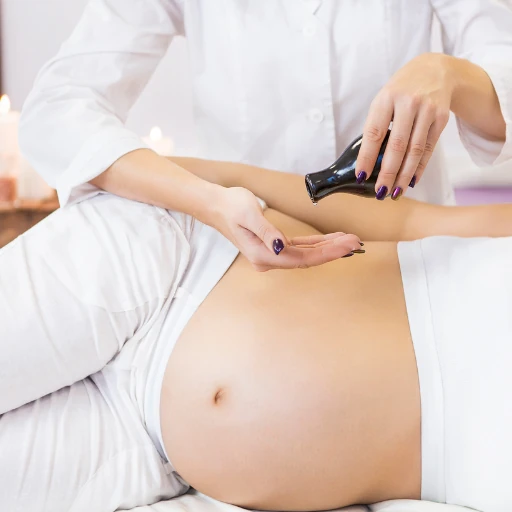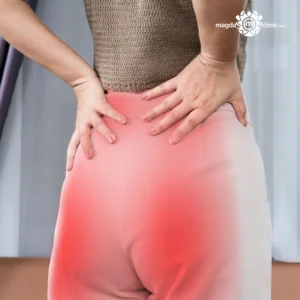Pregnancy is a beautiful journey, but it can also bring physical discomfort and stress. One effective way to alleviate these issues is through pregnancy massage therapy. In this comprehensive guide, we’ll provide you with all the information you need to choose the right pregnancy massage therapist for your needs.
Understanding the Benefits of Pregnancy Massage
Before delving into the process of selecting a therapist, it’s crucial to understand the benefits of pregnancy massage. These include:
Reduced stress and anxiety: Massage helps release feel-good hormones, promoting relaxation and reducing stress.
Improved circulation: Enhanced blood flow provides more oxygen and nutrients to both the mother and the baby.
Reduced swelling: Gentle massage can help reduce fluid retention and swelling in the extremities.
Pain relief: Targeted massage can alleviate common pregnancy-related aches, such as lower back pain and sciatica.
Improved sleep: By promoting relaxation and reducing discomfort, massage can improve sleep quality.
Qualifications and Certifications: What to Look For
When choosing a pregnancy massage therapist, their qualifications and certifications are essential. Here are some key factors to consider:
Licensure: Ensure the therapist is licensed to practice massage therapy in your state or region.
Specialisation in prenatal massage: Look for a therapist with additional training in prenatal massage, such as a certification from a recognised organization like the Association of Massage Therapists (AMT).
Experience: A therapist with experience working with pregnant clients is more likely to be familiar with the unique needs and precautions required during pregnancy massage.
Personal Preferences: Finding the Right Fit
Beyond qualifications, consider your personal preferences to ensure a comfortable and enjoyable experience:
Gender: Some clients may feel more comfortable with a therapist of a specific gender. Choose a therapist you feel at ease with.
Communication style: A good therapist will listen to your needs, provide clear instructions, and be attentive to your comfort during the session.
Environment: Evaluate the therapist’s office or studio for cleanliness, comfort, and a relaxing atmosphere.
Types of Pregnancy Massage Techniques
Various massage techniques can be used during pregnancy, each with its benefits. Some popular types include:
Swedish massage: This technique uses long, gliding strokes to promote relaxation and improve circulation.
Deep tissue massage: Targeting deeper layers of muscle and connective tissue, this method is ideal for addressing specific pain points.
Shiatsu: A Japanese form of massage that uses finger pressure to stimulate acupressure points, promoting energy flow and balance.
Reflexology: This technique focuses on pressure points in the feet, hands, and ears, which are believed to correspond to different organs and systems in the body.
Discuss your preferences and needs with your therapist, and they can recommend the most suitable techniques for your situation.
Safety Precautions to Consider
Pregnancy massage is generally safe, but some precautions should be taken:
First trimester: Some therapists may not perform massage during the first trimester due to the risk of miscarriage. Consult your healthcare provider for guidance.
High-risk pregnancies: If your pregnancy is considered high-risk, obtain approval from your healthcare provider before receiving massage therapy.
Pregnancy complications: If you have complications such as preeclampsia, gestational diabetes, or a history of preterm labour, consult your healthcare provider before scheduling a massage.
Proper positioning: Ensure your therapist is knowledgeable about appropriate positioning during pregnancy massage, such as using side-lying positions or specialized cushions.
Questions to Ask a Potential Therapist
Before committing to a therapist, ask them some essential questions to ensure they’re the right fit for your needs:
What is your experience with prenatal massage? Look for a therapist with a track record of working with pregnant clients, as this indicates familiarity with the unique needs of pregnancy massage.
What certifications do you have related to prenatal massage? A therapist with specialised training in pregnancy massage will be better equipped to address your needs safely and effectively.
Do you have any client references or testimonials? Positive feedback from other pregnant clients can provide reassurance that you’re making the right choice.
What precautions do you take for pregnant clients? Your therapist should be knowledgeable about contraindications, positioning, and techniques specific to pregnancy massage.
Can you accommodate my specific needs or concerns? If you have any particular issues or preferences, ensure your therapist is willing and able to address them.
Preparing for Your Pregnancy Massage Session
Once you’ve chosen a therapist, take the following steps to prepare for your session:
Wear comfortable clothing: Loose, comfortable clothing will make it easier to undress and dress before and after your massage.
Arrive early: Give yourself time to complete any required paperwork, use the restroom, and relax before your appointment.
Communicate with your therapist: Discuss any concerns, preferences, or areas of focus with your therapist before the session begins.
Listen to your body: If you experience discomfort during the massage, let your therapist know immediately.
Conclusion
Choosing the right pregnancy massage therapist is essential for ensuring a safe, enjoyable, and beneficial experience. By considering qualifications, certifications, personal preferences, safety precautions, and asking the right questions, you can find the perfect therapist to support your well-being during this special time. Remember to consult with your healthcare provider before beginning any massage therapy, and always listen to your body for the best possible experience.






